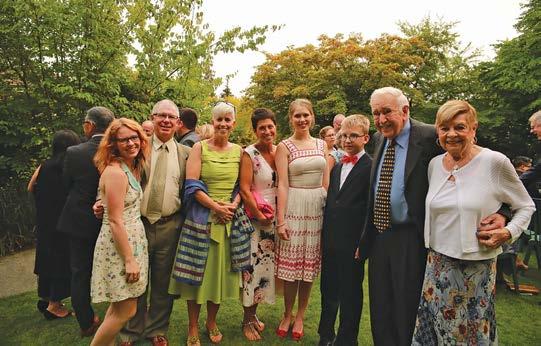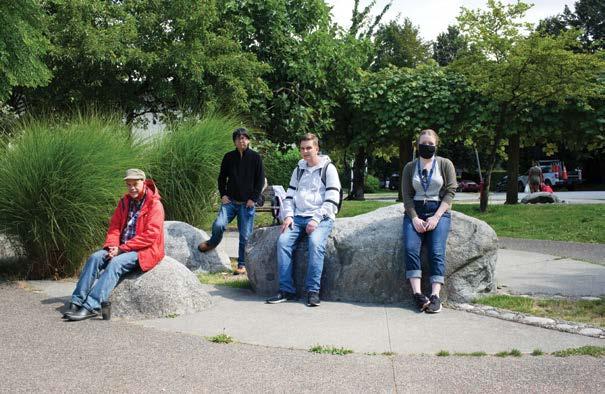THEME
Filip de Sagher
Time to Recalibrate the Moral Compass
W
hen the hot August sun is halfway to its descent toward the dark blue Pacific Ocean, a fading yellow-blueish haze seems to settle over the Georgia Straight. The deep green of the Douglas firs on its edges starts to mix with the shadowy outline of Vancouver Island in the distance and often a late afternoon sailing boat right in the middle, its white sails neatly trimmed, emphasizes that coalescence of colours. The sun slowly becomes a dark orange dot on the horizon. No wonder I then often reflect on the paintings of Claude Monet (b.1850 – d.1926), the French painter who founded Impressionism with his painting “Impression, soleil levant” or “Impression, sunrise.” He painted
12
TABLE OF CONTENTS
©iStockphoto.com/Teraphim
no real landscapes, but what he thought he saw when looking at them: The changing of light, the passing of seasons.
After all, why wait until death when one believes in a worthy cause? And why formulate a bequest in monetary terms? My view of the Straight at these times feels like a so-called milliondollar view while I am attending to my dry-rubbed spatchcock chicken on the barbeque, chilled BC brew in hand. Many such famous paintings were and are “charitably given” to musea all over the world, more often than not gifted/loaned/rented/entrusted/ leased via complex corporate-fiscal structures. It is tax-driven monetary charitable giving, frequently, however, unrelated to a painting’s artistic value. BC Notaries Association
Oscar Wilde (b. 1854 – d. 1900), the famous Irish poet and playwright, defined a cynic as a person knowing the price of everything but the value of nothing. The expression “a milliondollar view” refers to the value, not the price, in the eye of the beholder. Value vs. price: I sometimes wonder if the distance between these two has not increased when it comes to charitable giving. After all, why wait until death when one believes in a worthy cause? And why formulate a bequest in monetary terms? Charity originally comes from the Latin carus, dear, (think, e.g., “carefully”) and quickly took on religious overtones as in “Christian love for one another.” The word philanthropy is often used interchangeably, literally referring to man’s love for one another (philos, love, and antrophos, man, both Greek terms, with man of course referring to both genders). Volume 29 Number 3 Fall 2020

























